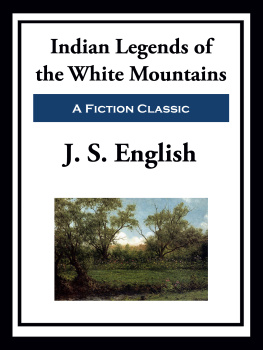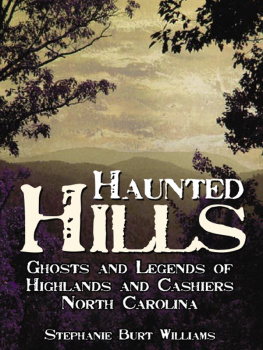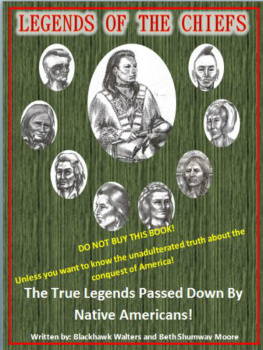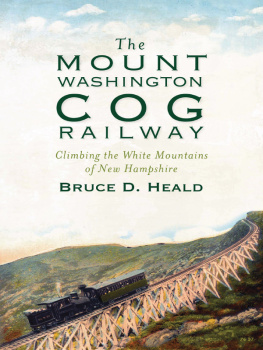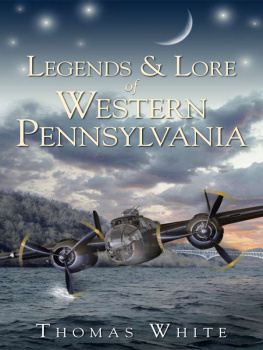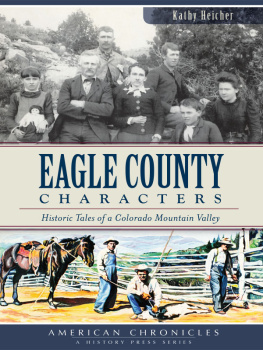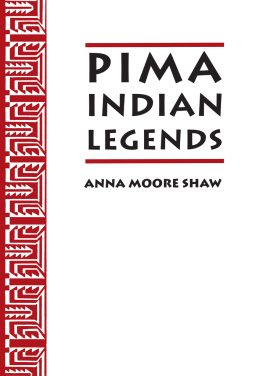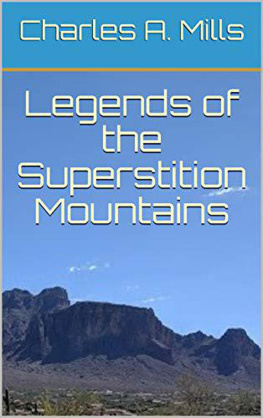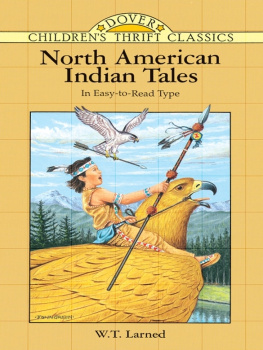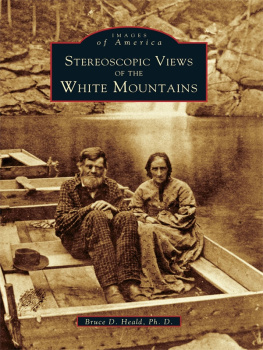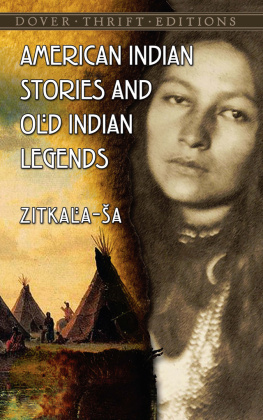J. S. English - Indian Legends of the White Mountains
Here you can read online J. S. English - Indian Legends of the White Mountains full text of the book (entire story) in english for free. Download pdf and epub, get meaning, cover and reviews about this ebook. year: 2021, publisher: Start Publishing LLC, genre: Detective and thriller. Description of the work, (preface) as well as reviews are available. Best literature library LitArk.com created for fans of good reading and offers a wide selection of genres:
Romance novel
Science fiction
Adventure
Detective
Science
History
Home and family
Prose
Art
Politics
Computer
Non-fiction
Religion
Business
Children
Humor
Choose a favorite category and find really read worthwhile books. Enjoy immersion in the world of imagination, feel the emotions of the characters or learn something new for yourself, make an fascinating discovery.
- Book:Indian Legends of the White Mountains
- Author:
- Publisher:Start Publishing LLC
- Genre:
- Year:2021
- Rating:4 / 5
- Favourites:Add to favourites
- Your mark:
- 80
- 1
- 2
- 3
- 4
- 5
Indian Legends of the White Mountains: summary, description and annotation
We offer to read an annotation, description, summary or preface (depends on what the author of the book "Indian Legends of the White Mountains" wrote himself). If you haven't found the necessary information about the book — write in the comments, we will try to find it.
Indian Legends of the White Mountains — read online for free the complete book (whole text) full work
Below is the text of the book, divided by pages. System saving the place of the last page read, allows you to conveniently read the book "Indian Legends of the White Mountains" online for free, without having to search again every time where you left off. Put a bookmark, and you can go to the page where you finished reading at any time.
Font size:
Interval:
Bookmark:

by J. S. English
Start Publishing LLC
Copyright 2021 by Start Publishing LLC
All rights reserved, including the right to reproduce this book or portions thereof in any form whatsoever.
First Start Publishing eBook edition.
Start Publishing is a registered trademark of Start Publishing LLC
Manufactured in the United States of America
10 9 8 7 6 5 4 3 2 1
ISBN 978-1-64974-130-1
The White Mountains have well deserved the title now so generally bestowed upon themThe Marvelous Crystal Hills. Caverns, precipitous cliffs and ravines, appalling, yet attractive in their awful grandeur, and the pastoral vision of fresh mountain brooks and verdant valleys, trickling cascades, waterfalls and imposing yet alluring mountain peaks, have thrilled with interest the visitor to a region where nature masses so many wonders.
Superbly grand and gorgeous is the vista; and he who is acquainted with the hallowed memories which repose in these lofty peaks, the tales which have sprung from those cavern depths, or the primitive associations of the silvery cascades and waterfalls, woven together in the sacred legends and lore of a savage nation, will say that his vision is broader and his perception plainer. As the sunlight unfolds to the eye a view of charms, rare in their magnificence so in the dark and hidden recesses, where the eye must hesitate, the minds vision lays bare the secrets of the long ago, pictured in the sunlight setting of the present.
Barren and bleak, rugged and forbidding, the peak of Chocorua looms like a temple tower or a fortress, such as giants in ancient times used in their wars against the gods. Utterly devoid of vegetation, the gray summit flanked by the other domes of the Sandwich Range which lie around, it speaks plainly of a day centuries gone, when the tales of the Red Sokokis were born within its rocky breast.
Chocorua, although 3540 feet in height, grows nothing but Alpine vegetation, and the bald, sharp summit has a narrow ridge much lower than the summit running to the northeast. Deep ravines and defiles mark the mountain side. It is very accessible, being approached by carriage, foot and bridle paths to a spur upon which a shelter house has been built; but the last stage of the journey to the summit must be made on foot, as the remainder of the route is entirely over steep ledges. From the summit, like a pinnacle tower, one can look over the entire wilderness. Chocorua has not changed thus she appeared when first the white man entered her forest.
At the advent of the early settlers, the Sokokis, a numerous and powerful Indian tribe, were in possession of the country now comprising Northern New Hampshire and the Maine borderland. Chocorua, who lived in the neighborhood of the mountain, was chief of a mighty tribe. He had watched the white mans ingress and had battled for the land of his fathers; but, as the settlers advanced, he retreated into the wild fastnesses of the forest, among the mountains, and here with the remnants of his tribe he lived for a time unharassed and unhampered by the pale-face. Tall and shapely, like the chiefs of his race, but more powerful than the others, he roamed the forests, a monarch. He hunted the deer and the moose, furnished his tepee with the skins of the bear, trapped the beaver and the mink and speared the salmon. Powerful in the councils of his nation, he was a warrior of renown. Already he had faced the white mans powder and his scalp locks were many. He had seen his land encroached upon, his supply of game and food wantonly destroyed and the Black Robe had entered to dispel his hopes of a Great Spirit, a Gitche Manitou, who would protect the red man in his wars and guide him in the chase. The heart of Chocorua was big, and at the council fires he spoke to the young braves, infused them with tales of his prowess and the record of their tribe, and bade them listen only to the voice of the Manitou and heed the advice of the wise men. They had been driven back by the white settlers, while the Great Spirit slept, but when Manitou awoke from his slumbers and spoke in his voice of thunder from the peak of the mountain, he would direct the Indians how to drive the invaders from their lands.
Chocorua had a son, a young boy of twelve who gamboled and frolicked with the papooses, but as lithe and agile as a fawn. Sturdy in limb, a robust little fellow, dexterous in his use of the bow and arrow, oftentimes he followed his father in the chase, climbing the cliffs in search of eagles eggs, bounding over rocky ledges, scrambling up the mountain sides in pursuit of the moose or paddling his bark canoe over the still waters of the lake. Ever watchful of this young lion, untamed and savage, careless as the panther which leaped from limb to limb, Chocorua looked with loving eyes on the stalwart shape of his young son. He pictured the time when the sinews in those arms would stand out like his own; when that hearing already acute would rival that of the animals which he hunted; when the features which now relaxed and smiled would become as strong and impassive as his own brown countenance; when the scalp axe would dangle at his belt and, decorated in the glories of his war paint, the son of Chocorua would go forth a brave. Ah, then! then would the voice of the Great Spirit in tones of thunder direct the red man, and again would the Sokokis be the most powerful among the nations.
Every day Chocorua would journey to the mountain top to beseech the Manitou, and from this tower he would scan the horizon. Great was his surprise one day to see beyond the tepees of his tribe, curls of blue smoke arising. Gazing intently, his keen eyes observed that the volume of smoke came not from the wigwam of an Indian but from the fire of a pale-face. Long and earnestly did Chocorua watch the wreaths of blue smoke as they ascended to the clouds. The white man had again invaded his domains. Chocorua was sad.
Settlers had surely come; ere long a few cabins were erected and the white invaders industriously commenced to till the ground and cultivate the fields. Fearful of the white mans power, yet distrustful of his purpose, the Indians were by no means friendly, yet, through fear, they were held in abeyance. Chocorua showed no sign of enmity, rather he seemed to cultivate the friendship of the pale-faces, for he gave them of his corn, bartered with pelts and skins for their goods, and in other ways was amicably disposed. His little son had learned to like the ways of the white squaw and in the white mans wigwam many a sweet bit he received from the good housewife. Almost every day he called but he was neglecting none the less his savage lessons, for the forest was his playground and the hunt his sport. One day as he visited the house he found on the table a cup which he supposed contained coffee and of which he had become very fond. He raised it to his lips and drank the contents. Instantly he became ill, and the good woman hurrying to the scene discovered the causethe cup had contained poison.
He was tenderly removed to the wigwam of Chocorua. The medicine men were called and their potions and charms administered, but to no avail. With the stoical demeanor of his race, the boy related the cause of his trouble and with face utterly inexpressive of pain or emotion he answered willingly as he had been taught, the message of the Great Spirit. Chocorua strode from his wigwam his countenance unchanged; but in his heart was the culmination of a long frustrated desirerevenge! death! The white man had followed him. He had plucked from his bosom the fire of his life, the hope of his race; he had murdered his father, his brothers and his child. The Manitou had spoken. He could hear his voice in the winds. The time had come; the accursed pale-faces must die and their scalps would dangle at his belt. First he must appease the Great Spirit and satisfy the cravings of his heartrevenge for his son. Silently wending his way through the forests to the cabin of the settler, Chocorua halted in the distance and then patiently waited for the departure of the husband. Yes, he must kill first the baby and the mother; and then after the husband had viewed their scalpless bodies, his scalp, too, would follow. At length the husband departed. Furtively watching and waiting, Chocorua crept toward the door and then with a bound and an exultant war whoop the tomahawk descendedmother and child lay lifeless. The father returned to find the mutilated bodies of his family. He loaded his rifle and departed from the house. He wandered to the wigwam of Chocorua; the chief was absent. All night he waited in ambush, but no return. In the morning he journeyed up the mountain, and when near the summit the white man and the chief of the Sokokis met face to face. The muzzle of the white mans rifle met the Indians breast. Backward, step by step, Chocorua was forced until he reached the summit; then standing on the edge of the precipice, the Indian with eyes aflame and in a voice of wrath said, Chocorua will go no further! He bids the white man defiance! Chocorua will go to the Great Spirit with the scalps of the white mans squaw and his papoose! He will hunt and shoot and fish in the Happy Hunting Grounds with his son and his fathers! Then his eyes flashed in a look of defiance, the pent-up hatred of his heart shone in his bronze features, his chest rose and heaved, and raising his hand he spoke thus: Chocorua curses the pale-face and his children; his curse and the curse of his Manitou on the white mans cattle! May the drought come on his crops! May the earth bum under him and may the red mans revenge follow him forever! Chocorua will die, but not by the white mans cannon! and the warrior chief turned and sprang from the precipice into the frightful abyss below.
Font size:
Interval:
Bookmark:
Similar books «Indian Legends of the White Mountains»
Look at similar books to Indian Legends of the White Mountains. We have selected literature similar in name and meaning in the hope of providing readers with more options to find new, interesting, not yet read works.
Discussion, reviews of the book Indian Legends of the White Mountains and just readers' own opinions. Leave your comments, write what you think about the work, its meaning or the main characters. Specify what exactly you liked and what you didn't like, and why you think so.

